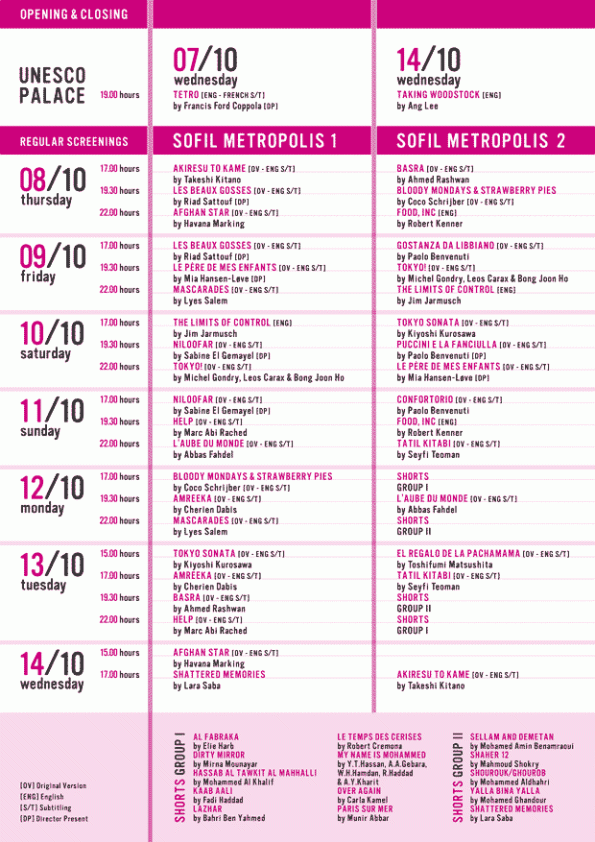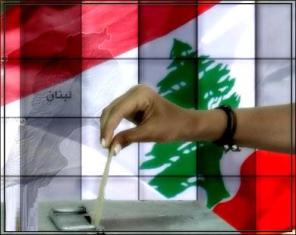Archive
Robert Fisk on freedom of speech in Lebanon
I came across the following article written by Robert Fisk on the rights of journalists and freedom of speech in Lebanon. As an aspiring journalist myself, this raises a lot of concerns. Please feel free to comment.
Robert Fisk: End of an era for Lebanon’s free press
Once a bastion of journalistic independence, Beirut’s newspapers are losing their edge
From The Independent
By Robert Fisk
For decades, Lebanese journalism has been applauded as the freest, most outspoken and most literate in the heavily censored Arab world. Alas, no more. Beirut’s best-read daily has just shed more than 50 staff and LBC, one of the country’s best-known television stations, has just fired three of its most prominent presenters. The Lebanese media are being hit – like the rest of the world – by the internet and falling advertising revenues. But this is Lebanon, where politics is always involved. Is something rotten in the state of the Lebanese press?
Is it by chance that An Nahar‘s culture editor – whose supplement campaigned against assassinated prime minister Rafiq Hariri’s plans for rebuilding downtown Beirut – has been fired after the paper cosied up to the politics of Hariri’s son Saad, now the Lebanese prime minister designate? Is it a coincidence that the three senior presenters on LBC represented the last supporters of the old Lebanese Forces (of civil war infamy) still working at the channel?
Neither An Nahar nor LBC are saying anything. But the Lebanese are waiting to find out which of their more than 20 dailies will be the next to shed staff for “economic reasons”. Will the old lefty As Safir find that it has politically recalcitrant staff (unlikely) or will the lovely French-language daily L’Orient Le Jour – whose 18th century French is Royalist rather than Republican – have a battle with those writers who still love ex-General Michel Aoun, Maronite Christian ally of the Hizbollah?
The problem is not so much the politics of Lebanon but the feudal state of the press. You cannot start a newspaper in Beirut – you have to buy an existing title from someone else. This costs money. So the rich own newspapers. Not much different, you may say, from the rest of the world. But the system in Lebanon is archaic; there are families in Beirut who own newspapers but don’t publish them – they are still waiting for a buyer.
As Elias Khoury, the sacked culture editor of An Nahar, a prize-winning novelist and academic and one of 53 men and women fired by the paper, puts it: “Newspaper owners were originally journalists – and with capitalism, the system did not change. Television in this country are not the press – they are propaganda, owned by confessional groups or parties. It’s the papers that are real journalism.”
But “real” journalism is sometimes hard to come by. When the Syrian army was still in Lebanon, An Nahar was as careful as the rest of the press in making sure than no boats got rocked. Indeed, when the Syrian military first arrived in Beirut in 1976, its offices were raided – to make sure that its journalists realised that they would have to be as compliant as their colleagues on Al-Baath and Tichrin, those titans of Baathist journalism across the mountains in Damascus.
But, along with As Safir, An-Nahar had an edge about it. It poached a wonderful analyst called Jihad Zein from As Safir, and under boss Ghassan Tueni it upheld independent journalism. “Tueni offered me the cultural supplement,” Khoury says, “and if he was still in control, none of this would have happened.” It is now his granddaughter Nayla who is in charge. Along with Khoury, Edmund Saab, co-editor in chief, Saha Bahasin and Georges Nassif also lost their jobs. They were told to collect their dismissal notes from a Lebanese postal official on the pavement outside the paper’s central Beirut office.
“One journalist came to work at 6pm on a Friday – when the postman had left,” Khoury adds. “He worked the Friday night and on Saturday and Sunday – and read in our rival paper on Monday that he had been fired! This reveals things about our work and about Beirut. The formula that our supplement is independent – that we can say what we want – is no longer acceptable. I didn’t fit. My supplement campaigned against Solidere [in which Rafiq Hariri held 10 per cent of the shares] and we got journalists and architects to write about how the company was destroying Ottoman Beirut and saving only the French colonial buildings. No-one stopped us. I could play the role of a leftist intellectual.”
No more. Nayla Tueni’s involvement in the majority March 14th movement, led by Hariri’s son Saad – who himself runs a rather dull daily called Al-Mustaqbal – means An Nahar has taken on a distinctly pro-government flavour.
At the same time, LBC has dismissed three of its best-known journalists, apparently because they were the final remnant of the Lebanese Forces on the channel. Diamond Rahme Geagea, Denise Fakhry and Vera Abu Munsif were sacked along with dozens of fellow staff members, including one woman who was six months’ pregnant, a fact which would normally make her un-dismissable under Lebanese law. Even the Christian Maronite patriarch, Nasrallah Sfeir, has expressed his concern.
The Lebanese journalists’ union has no mandate to help unemployed writers. “Who protects the rights of journalists?” L’Orient Le Jour asked last week. In Lebanon, it seems, the answer is no one.
Mika: If there’s an ounce of Lebanon in your family, it will take over.
I came across this interesting article dated Oct.14, 2009 on the 26-year-old Lebanon born singer, Mika. In the following excerpt Mika talks about his Lebanese background. He also says that he grew up listening to Fairuz thanks to his parents.
Six weeks later, I visit Mika on an early spring day in London; he is a dual British and American national, but calls Kensington home and his flat is in the basement of the family’s grand house.
His mother Joannie is Lebanese (his father is American) and while the civil war in that country meant that the family fled when Mika was a baby, he says: “if there’s an ounce of Lebanon in your family, it will take over.
Ours is a Lebanese household: there’s incense burning; you’ll get fed within 10 minutes.
“There’s a survival trait, too,” he continues, curled up on his white sofa, “and I think that’s what’s odd about me. In Lebanon, there’ll be bombs being thrown, but the restaurants will shut down only when they have to.
“There’s this mentality that if you’re going to cry, you stand on the table, throw your hands in the air and scream as loudly as you can and you deal with it. I think it’s affected the way I make music, these extremes of emotion.”
The family moved to Paris — and Mika now speaks fluent French — before heading to London when he was nine because his father’s business was in temporary trouble.
Click here to read the whole article.

Credits: Photo via yalibnan.com
After 56 years, Lebanon is once again a U.N. Security Council member.
Lebanon, Bosnia among five new UN council members
From Reuters
Politically divided Lebanon and Bosnia were among five countries elected to the U.N. Security Council on Thursday, in a move diplomats hoped would help strengthen the two countries’ fragile institutions.
In an uncontested election, the U.N. General Assembly voted for Bosnia, Brazil, Gabon, Lebanon and Nigeria to serve on the council through 2010 and 2011. All five had been selected in advance by their regional groups.
From Jan. 1 they will replace Burkina Faso, Costa Rica, Croatia, Libya and Vietnam as non-veto-holding members of the 15-nation body, the powerhouse of the United Nations with the authority to impose sanctions and send peacekeeping forces.
Unresolved political and security issues have meant that both Lebanon and Bosnia are subject to Security Council scrutiny. Lebanon has some 12,500 U.N. peacekeeping troops in its south, stemming from past conflicts with Israel, while Bosnia, torn by war in the 1990s, has a European Union force.
Click on the link above to read the whole article.
Lebanese Singer Nancy Ajram to appear on the Oprah Winfrey Show
Nancy Ajram, the world famous Lebanese singer, will appear on the Oprah Winfrey Show tonight. Oprah describes Ajram as “the Britney Spears of the Middle East.” The whole episode is scheduled to air tonight on MBC4.
Watch a few seconds of Oprah’s introduction of Ajram.
Beirut’s Salon du Livre, the third largest French-language book fair in the world
Beirut’s francophone book fair celebrates 16th anniversary
The 16th anniversary of Beirut’s francophone book fair was launched on Wednesday at the headquarters of BankMed in Clemenceau. With over 150 authors, 70 of whom come from francophone countries scattered across the globe, “Salon Du Livre Francophone de Beyrouth” is a major event in Lebanese cultural life.
… With over 80,000 visitors a year, the event is the third largest French-language book fair in the world, after those of Paris and Montreal.
… The 16th Salon Du Livre Francophone de Beyrouth holds extra significance over previous events, as it coincides with Beirut’s year as the UNESCO World Book Capital.To mark the occasion on October 21st many prominent francophone writers hailing from all over the world will embark on a boat and to salute the city of Beirut.
… Beirut’s Salon du Livre will take place from October 23rd until November 1st 2009 at the Beirut International Exhibition and Leisure Center in Downtown Beirut.
Beirut International Film Festival 7-14 Oct. 2009
The week-long Beirut International Film Festival which was launched today and will show short movies and films from the Arab world, Europe, the United States and Asia. Below is the program. Catch a movie while you can. It’s an event not to be missed!

The Beirut International Film Festival program as found on http://www.beirutfilmfoundation.org
A Beauty Salon for Little Girls in Lebanon
Beauty bug bites Beirut’s littlest
From AFP
Mia may be only seven years old but the Lebanese youngster knows what she wants: a manicure and pedicure in purple, a golden star stenciled onto her hair, and a facial.And while many an older woman may struggle over what works best for the complexion, to little Mia the answer is simple: chocolate.
“It makes my skin soft,” she explains, as a beautician spreads the dark goo over her face in the Spa-Tacular Salon, a professional beauty centre for children in Lebanon.
The salon is one of a handful of parlours that have opened their doors to Lebanon’s littlest, and the trend is picking up rapidly in a country reputed for its image-conscious populace.
Made of sugar and spice and many things nice, Mia’s 15-dollar (11-euro) chocolate facial is a hit with her friends who dip their index fingers into the homemade mix and then lick their fingers, squealing as they hold back their freshly-coiffed hair.
Dressed in bright pink robes, the little girls, whose ages range from five to 11, pick shades of pink and blue for their nails and settle into brightly-coloured booster seats awaiting their turn.
Credits: AFP
Click on the link above to read the whole article.







What Are They Saying?